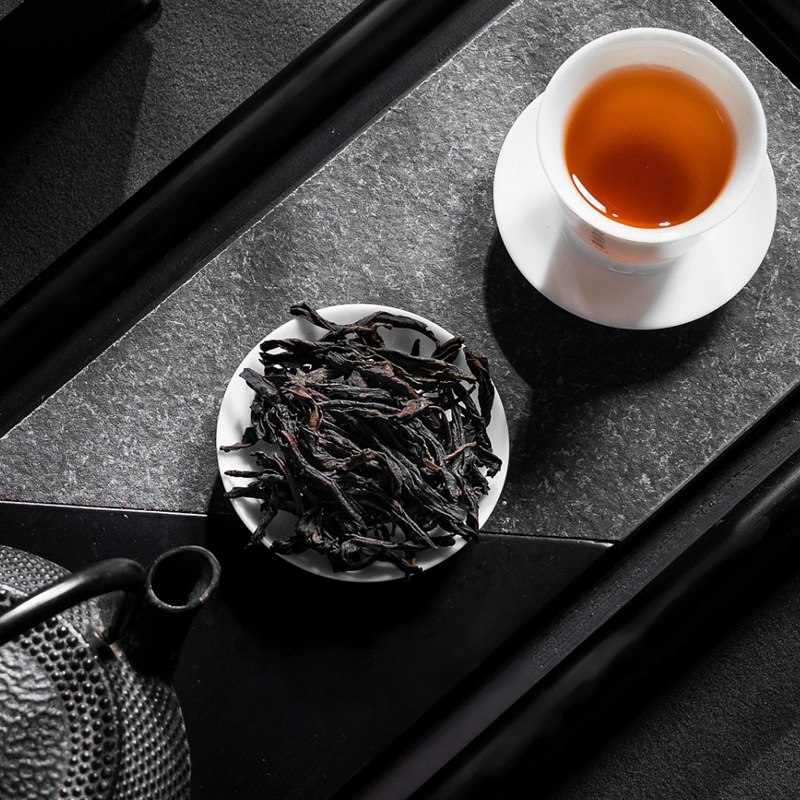DARK TEA

DARK TEA
Black tea is one of the six major tea types, belonging to post fermented tea. It is a unique tea type in China with a long production history, mainly produced in Yunnan, Hunan, Hubei, Guangxi, Sichuan and other places in China
1、 Basic Information
Chinese name: Black Tea
Category: Post fermented tea
Main production areas: Yunnan, Hunan, Hubei, Guangxi, Sichuan and other places
Main varieties: Anhua black tea, Guangxi Liubao loose tea, Sichuan border tea, Shaanxi Jingyang Fuzhuan tea, Hubei Laobian tea, etc
2、 Historical evolution
The history of black tea can be traced back to the Jiajing period of the Ming Dynasty. Anhua in Hunan Province used wet green tea to pile up and dry with open flame pine wood, which turned the color of the tea black and brown, hence the name black tea. Afterwards, black tea gradually developed into one of the unique types of tea in China.
3、 Growing environment and manufacturing process
Black tea trees prefer humid and rainy climates, and are mostly found in mountains and forests. They can be planted in acidic soils. The production process mainly includes steps such as withering, initial kneading, pile fermentation, re kneading, and drying. Among them, Wodui fermentation is a unique process of black tea and an important link in the formation of its color, aroma, and flavor.
4、 Quality characteristics
The overall quality requirements for good black tea are a glossy black color, bright orange yellow soup color, pure aroma, extraordinary floral or "ripe mung bean aroma" of aged tea, and a mellow and sweet taste. Specifically, the quality characteristics of black tea can be summarized as follows:
Appearance: The stripes are tight and solid, with a shiny and glossy black color.
Soup color: Orange yellow or red as bright as amber, clear and transparent.
Aroma: With a sweet aroma of wine or pine smoke, aged tea has an aged aroma.
Taste: mellow and sweet, without bitter taste.
Leaf base: Black brown oily, soft and elastic.
5、 Effect and Function
Black tea contains rich nutrients such as vitamins and minerals, proteins, amino acids, carbohydrates, etc., which have various functions and effects:
Regulating blood sugar: The tea polysaccharide complex in black tea helps regulate blood sugar levels.
Regulating blood pressure: The components such as theanine and caffeine in black tea can inhibit blood pressure elevation and dilate blood vessels.
Promoting digestion: The caffeine, vitamins, amino acids, and other substances in black tea help with food digestion and fat metabolism.
Weight loss and slimming: The components of vitamin B1 and tannic acid in black tea can promote fat burning and the elimination of metabolic waste.
Antioxidant: The antioxidant substances such as catechins and theaflavins in black tea can eliminate free radicals and delay aging.
6、 Drinking taboos
Although black tea has multiple benefits, not everyone is suitable for drinking. Here are some taboos for drinking black tea:
Avoid drinking new tea: New tea has a short storage time and contains a large amount of unoxidized polyphenols, aldehydes, and alcohols, which have a strong stimulating effect on the gastrointestinal mucosa and can easily induce stomach diseases.
Avoid drinking tea on an empty stomach: Drinking tea on an empty stomach can dilute gastric juice, reduce digestive function, and cause a large amount of harmful components in tea to enter the bloodstream, leading to symptoms such as dizziness, palpitations, and weakness in hands and feet.
Avoid drinking tea immediately after meals: Tannic acid in tea can combine with iron in food to form insoluble end compounds, affecting the body's absorption of iron. Prolonged exposure to this can lead to anemia.
Avoid drinking tea for fever: Theophylline in tea has the effect of raising body temperature, and drinking tea for fever patients is like adding fuel to the fire.
Ulcer patients should avoid drinking tea: caffeine in tea can promote gastric acid secretion, increase gastric acid concentration, and induce ulcers or even perforation.
Pregnant and lactating women should drink with caution: Black tea contains caffeine and other ingredients, and excessive consumption may affect the health of both mother and baby.




